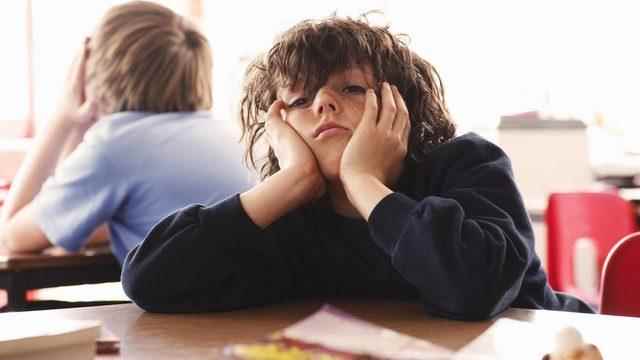A study conducted in Northern Ireland revealed that daydreaming during class affects the learning level of school-aged children.
According to the research, children who break away from the lesson and delve into their dreams learn less information than those who listen to the lesson carefully.
Queen’s University Belfast research is the first scientific study to examine how thinking about other things during class, in other words “mind wandering”, affects learning in young children.
For the research, in which 97 children aged 6-11 participated, a recording of a fictional story belonging to a pharaoh who lived in Ancient Greece was played.
These children were asked questions every 2 minutes to test that they were still listening carefully to the story.
After the story ended, the children were asked 10 questions to understand what they remembered. The children were also asked questions about whether they liked the story and whether they were interested in the story.
It was observed that the most frequently “dreaming” children during the story remembered less about the story. This indicated that daydreaming affects children’s learning.
For a quarter of the time, the children dreamed
Experts say daydreaming and distraction are inevitable in children.
Queen’s University research also revealed that for a quarter of the time the experiment was conducted, children involuntarily daydream.
“To our knowledge, this is the first study to examine the relationship between mind wandering and learning in a sample of children,” the researchers say.
Speaking to the BBC, Dr. Agnieszka Graham from the research team said that by examining this relationship, we can find ways to prevent distraction in young students more easily.
If the interest in the lesson is high, daydreaming decreases.
Daydreaming is common among adults and children alike.
Previous studies have focused on adults in this area, and it has been revealed that daydreaming “decreases performance in different learning activities such as reading”.

According to the Queen’s University report, if children are more engaged in the lesson, they daydream less.
Drawing attention to the fact that daydreaming can be harmful for children during “educational activities”, the report said, “Children’s interest in a subject also affects how far the mind wanders, which in turn affects participants’ ability to remember the story they have heard.”
Dr. Graham said investigating when and why children dream during class can help teachers avoid distraction.
Stating that children who get distracted during lessons at schools often get into trouble, they are accused of carelessness and disrespect. Graham continued:
“However, our research has shown that children, like adults, are constantly unable to concentrate fully, and may be distracted during certain parts of their school day.
“Our findings suggest that if we explore the causes and consequences of daydreaming in the classroom in the early years of education, we can develop measures to enable children to recognize when they are distracted and refocus their attention on what they are doing.”
